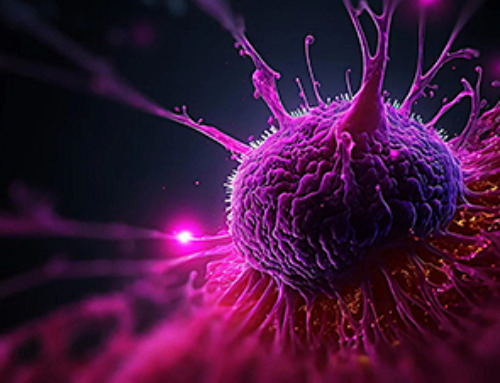Many people with long COVID feel that science is failing them. Neglecting them could make the pandemic even worse.
While watching the scientific community grapple with long COVID, I have thought a lot about a scene in The Lord of the Rings. Faced with impending doom, the hobbits Merry and Pippin ask the powerful treelike ents for help. But despite the urgency of the situation, the ents are slow. They meet for hours, and after a lot of deliberation, they announce that they’ve agreed that the hobbits are not orcs. The hobbits, who already knew that, are shocked. They were hoping for more.
In June 2020, when I started reporting on long COVID, few scientists or physicians knew that it existed—and many doubted that it did. The common wisdom was that people infected with SARS-CoV-2 mostly get mild symptoms that resolve after two weeks. And yet, thousands of “long-haulers” had already been debilitated by months of extreme fatigue, brain fog, breathing difficulties, and other relentless, rolling problems. More than a year later, several clinics care for long-haulers, while the biomedical community, like the ents, has begun to identify long-COVID patients as long-COVID patients. But some researchers still hesitate to recognize long COVID if it doesn’t present in certain ways; they’re running studies without listening to patients, and they’ve come up with their own arguably unhelpful name for the disease. Like Merry and Pippin, long-haulers are growing frustrated that what is self-evident to them—their condition is very real and in need of urgent attention from those with power—is taking a worrying amount of time to be acknowledged and acted upon.
After a year and a half, the risk of long COVID, for both unvaccinated and vaccinated people, is one of the pandemic’s biggest and least-addressed unknowns. The condition affects many young, healthy, and athletic people, and even now “none of us can predict who’s going to have persistent symptoms,” Lekshmi Santhosh, the medical director of a long-COVID clinic at UC San Francisco, told me. A small number of fully vaccinated people have become long-haulers after breakthrough infections, although no one knows how common such cases are, because they aren’t being tracked. Mysteries abound; meanwhile, millions of long-haulers are sick.
Long-haulers were the ones who described, defined, and drew attention to their condition: “Patients collectively made long Covid,” two long-haulers, the geographer Felicity Callard and the archaeologist Elisa Perego, wrote in a historical review. Now many feel that their expertise is being ignored and their hard-won knowledge is being excluded from investigations into their own illness. The message seems to be: Thanks for everything; academia can take it from here.
This attitude is slowing down long-COVID research and skewing its focus. Both long-haulers and researchers who work with them have told me about flawed studies that paint an inaccurate picture of the condition, or clinics that are recommending potentially harmful treatments. Many researchers, they argue, are missing the full picture because they’re treating long COVID as a completely new entity, and ignoring telling similarities to other complex illnesses such as myalgic encephalomyelitis/chronic fatigue syndrome (ME/CFS).
“The interest of the biomedical community is welcome—we wanted their attention!” says Athena Akrami, a neuroscientist at University College London who is part of the Patient-Led Research Collaborative, a group of long-haulers who have been studying their own community. But many academics, as they are wont to do, are contorting questions about long COVID to fit their preexisting research agendas. “In an ideal scenario with infinite resources, scientists could take an intellectual interest in some peculiarity of the condition,” Akrami told me. “But this is the real world, and limited resources need to be distributed according to the needs of patients.”
When I first spoke with Akrami, last year, she was on day 76 of her symptoms. This year, I called her on day 526. She has improved enough to take “long” half-hour walks without crashing—in the gaps between monthly relapses that completely incapacitate her for a week. Many long-haulers partially recover after a few months, or learn to manage their symptoms. But some “first-wavers” are still dealing with cycles of serious illness. Through 2020’s spring, summer, and winter surges, Donald Trump’s departure and Joe Biden’s arrival, the vaccine rollout and Delta’s ascent, they’ve been struggling to work, concentrate, or exercise. Many have been told by medical professionals that they’re just having anxiety or making up their symptoms. Even now, “it happens more often than not,” Lisa McCorkell of the Patient-Led Research Collaborative told me.
Despite long-haulers’ fight for recognition, any discussion of the pandemic still largely revolves around two extremes—good health at one end, and hospitalization or death at the other. This ignores the hinterland of disability that lies in between, where millions of people are already stuck, and where many more may end up. The coronavirus is here to stay, and even as vaccines diminish the threat of hospitalization and death, we don’t know yet how well they will protect against the disability of long COVID. The choice we make about how to study this condition will define the toll that SARS-CoV-2 takes for years to come….
News
Deadly Pancreatic Cancer Found To “Wire Itself” Into the Body’s Nerves
A newly discovered link between pancreatic cancer and neural signaling reveals a promising drug target that slows tumor growth by blocking glutamate uptake. Pancreatic cancer is among the most deadly cancers, and scientists are [...]
This Simple Brain Exercise May Protect Against Dementia for 20 Years
A long-running study following thousands of older adults suggests that a relatively brief period of targeted brain training may have effects that last decades. Starting in the late 1990s, close to 3,000 older adults [...]
Scientists Crack a 50-Year Tissue Mystery With Major Cancer Implications
Researchers have resolved a 50-year-old scientific mystery by identifying the molecular mechanism that allows tissues to regenerate after severe damage. The discovery could help guide future treatments aimed at reducing the risk of cancer [...]
This New Blood Test Can Detect Cancer Before Tumors Appear
A new CRISPR-powered light sensor can detect the faintest whispers of cancer in a single drop of blood. Scientists have created an advanced light-based sensor capable of identifying extremely small amounts of cancer biomarkers [...]
Blindness Breakthrough? This Snail Regrows Eyes in 30 Days
A snail that regrows its eyes may hold the genetic clues to restoring human sight. Human eyes are intricate organs that cannot regrow once damaged. Surprisingly, they share key structural features with the eyes [...]
This Is Why the Same Virus Hits People So Differently
Scientists have mapped how genetics and life experiences leave lasting epigenetic marks on immune cells. The discovery helps explain why people respond so differently to the same infections and could lead to more personalized [...]
Rejuvenating neurons restores learning and memory in mice
EPFL scientists report that briefly switching on three “reprogramming” genes in a small set of memory-trace neurons restored memory in aged mice and in mouse models of Alzheimer’s disease to level of healthy young [...]
New book from Nanoappsmedical Inc. – Global Health Care Equivalency
A new book by Frank Boehm, NanoappsMedical Inc. Founder. This groundbreaking volume explores the vision of a Global Health Care Equivalency (GHCE) system powered by artificial intelligence and quantum computing technologies, operating on secure [...]
New Molecule Blocks Deadliest Brain Cancer at Its Genetic Root
Researchers have identified a molecule that disrupts a critical gene in glioblastoma. Scientists at the UVA Comprehensive Cancer Center say they have found a small molecule that can shut down a gene tied to glioblastoma, a [...]
Scientists Finally Solve a 30-Year-Old Cancer Mystery Hidden in Rye Pollen
Nearly 30 years after rye pollen molecules were shown to slow tumor growth in animals, scientists have finally determined their exact three-dimensional structures. Nearly 30 years ago, researchers noticed something surprising in rye pollen: [...]
NanoMedical Brain/Cloud Interface – Explorations and Implications. A new book from Frank Boehm
New book from Frank Boehm, NanoappsMedical Inc Founder: This book explores the future hypothetical possibility that the cerebral cortex of the human brain might be seamlessly, safely, and securely connected with the Cloud via [...]
How lipid nanoparticles carrying vaccines release their cargo
A study from FAU has shown that lipid nanoparticles restructure their membrane significantly after being absorbed into a cell and ending up in an acidic environment. Vaccines and other medicines are often packed in [...]
New book from NanoappsMedical Inc – Molecular Manufacturing: The Future of Nanomedicine
This book explores the revolutionary potential of atomically precise manufacturing technologies to transform global healthcare, as well as practically every other sector across society. This forward-thinking volume examines how envisaged Factory@Home systems might enable the cost-effective [...]
A Virus Designed in the Lab Could Help Defeat Antibiotic Resistance
Scientists can now design bacteria-killing viruses from DNA, opening a faster path to fighting superbugs. Bacteriophages have been used as treatments for bacterial infections for more than a century. Interest in these viruses is rising [...]
Sleep Deprivation Triggers a Strange Brain Cleanup
When you don’t sleep enough, your brain may clean itself at the exact moment you need it to think. Most people recognize the sensation. After a night of inadequate sleep, staying focused becomes harder [...]
Lab-grown corticospinal neurons offer new models for ALS and spinal injuries
Researchers have developed a way to grow a highly specialized subset of brain nerve cells that are involved in motor neuron disease and damaged in spinal injuries. Their study, published today in eLife as the final [...]





















